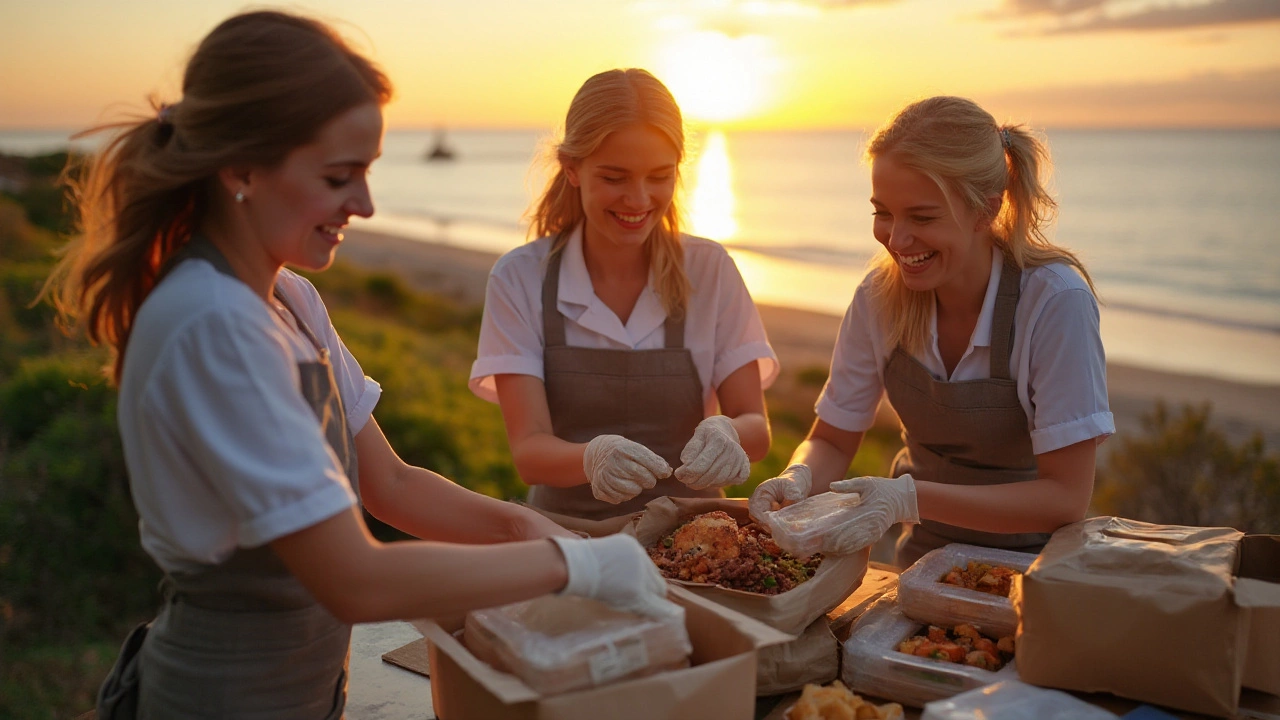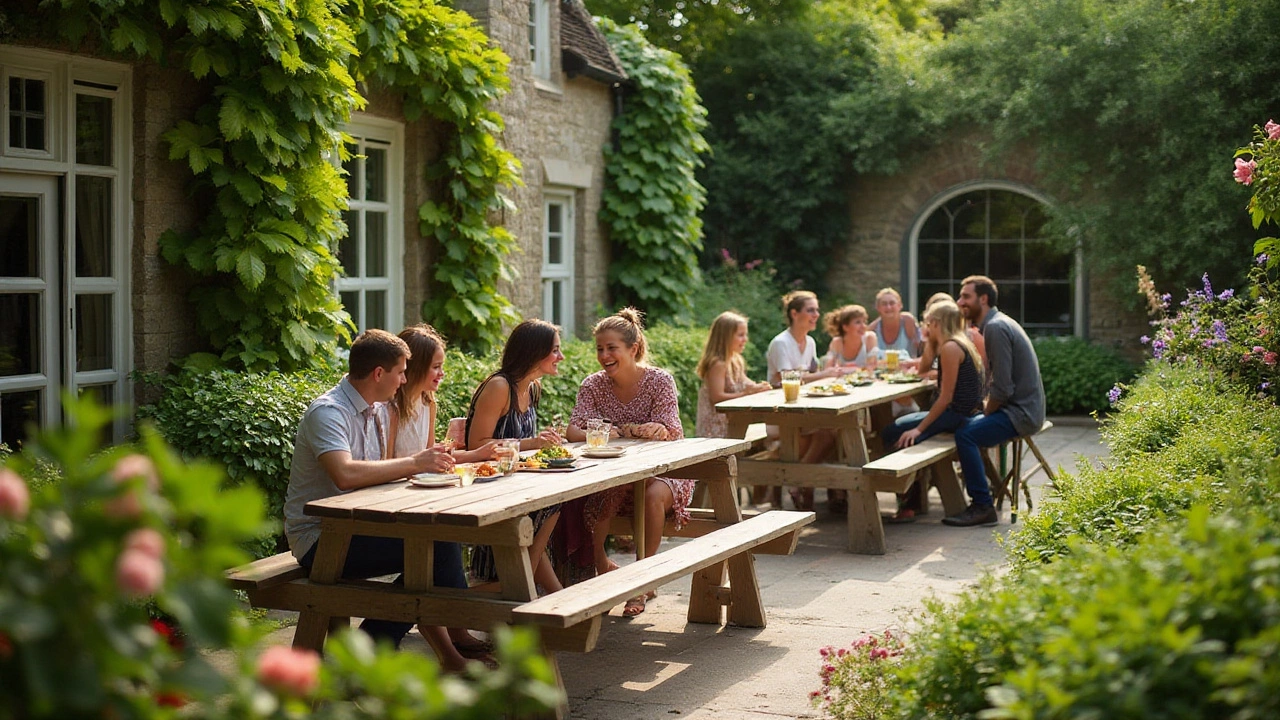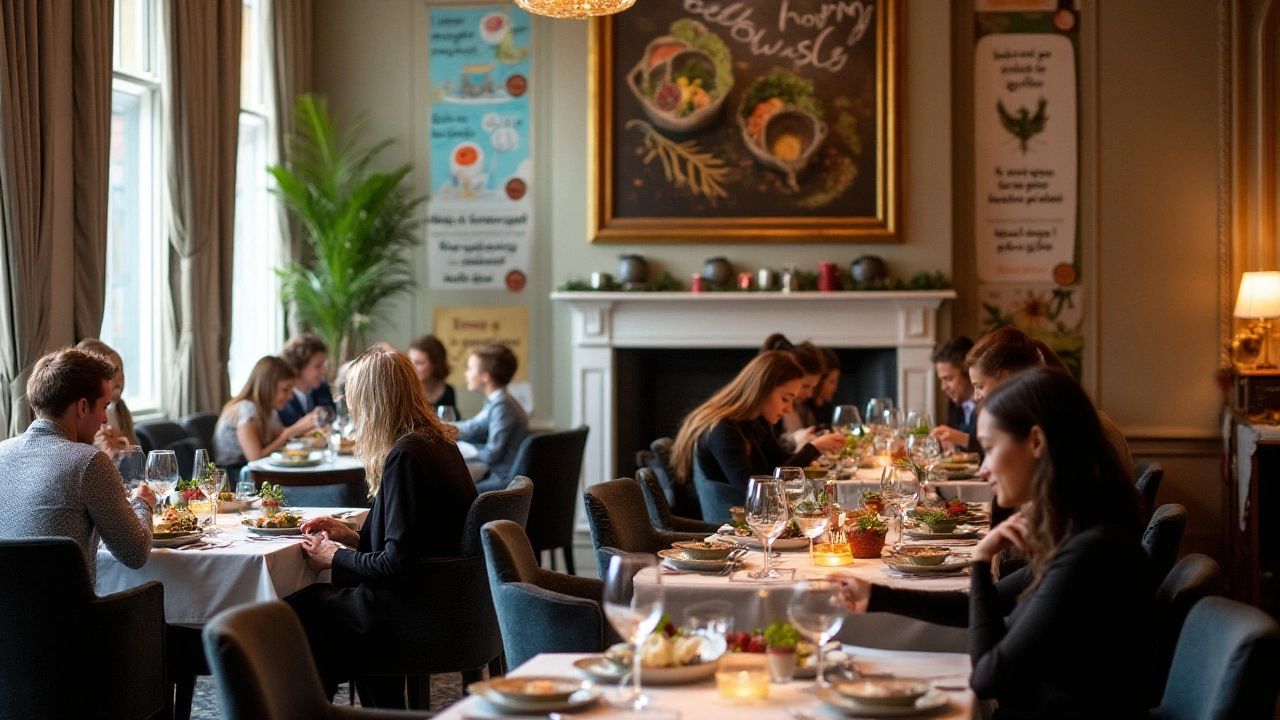In the world of all-inclusive travel, where guests indulge in endless buffet spreads and lavish dining experiences, there's an unseen challenge lurking: the considerable amount of food that goes uneaten. This leftover food dilemma isn't just about waste; it's about opportunity and responsibility.
As hoteliers become increasingly aware of their environmental footprint, many are turning towards more sustainable practices. However, it’s a journey that involves creativity, commitment, and sometimes unprecedented solutions. Resorts are now finding innovative ways to turn potential waste into resources or support for their communities.
Understanding how these establishments manage uneaten food not only sheds light on their operational challenges but also reveals how guests can participate in these eco-friendly efforts. After all, everyone plays a role in ensuring that the bounty of the buffet doesn’t end up as just another waste statistic. Here's a closer look at how all-inclusive hotels are leading the way in sustainable hospitality.
- The Magnitude of Food Waste in Hotels
- Innovative Solutions and Practices
- Community Engagement & Donations
- Tips for Guests to Reduce Waste
The Magnitude of Food Waste in Hotels
Every year, hotels around the globe generate an astounding amount of food waste, with a significant portion originating from all-inclusive resorts. According to the World Wildlife Fund, hotels in the United States alone discard approximately 5-10% of the food they purchase each day. While the exact figures may vary by country and region, a similar trend is observed worldwide. The abundance of dining options, designed to cater to diverse tastes and expectations, often leads to excessive preparation and, consequently, discussions around waste management have become essential.
In all-inclusive settings, guests enjoy the freedom to sample a vast array of dishes, often leading to impulse selections and uneaten portions left behind at the end of each meal. This is a hospitality paradox; the very promise of plenty becomes a barrier to sustainability. A report by the Global Food and Beverage Trends indicates that food waste accounts for up to 70% of a hotel's total waste stream. With buffet-style service being a primary culprit, many resorts are now reconsidering their strategies to manage inventory better and reduce excess production without compromising guest satisfaction.
Not only is the environmental impact significant, but the financial implications are substantial as well. Waste management and disposal costs add to operational expenses, motivating hotels to seek alternative solutions. Several establishments now track buffet consumption trends and adjust their offerings accordingly. This proactive approach reduces waste, lowers costs, and aligns with global efforts towards sustainability. In an interview with CNN Travel, a representative from a leading resort highlighted, "The challenge is to balance guest expectations with responsible practices. By analyzing data and understanding consumption patterns, we aim to cut waste by 30% in the coming years."
Quantifying the Challenge
To better understand how food distribution and waste work within all-inclusive resorts, several scrutinize each step of the food service process. This includes analyzing everything from procurement and storage to preparation and servitude. Research indicates that waste often occurs at multiple points, showcasing the need for a comprehensive approach to tackle the issue effectively. A study conducted by the Environmental Protection Agency reveals that hotels that implemented detailed waste audits and employee training programs saw an average reduction in waste of 15%. These efforts go beyond simply tracking; they symbolize a shift in operational culture where sustainability is prioritized.Addressing food waste within the hospitality industry significantly impacts not just the environment but also the communities that surround these establishments. Many hotels are integrating zero-waste initiatives, creatively finding ways to redistribute leftovers or transform them into resources. From composting to donating excess food to local shelters, every small step is crucial towards a more sustainable future. As awareness continues to spread, both hotels and guests are increasingly mindful of their roles in minimizing waste – understanding that luxury shouldn't come at the cost of our planet’s health.

Innovative Solutions and Practices
Addressing the challenge of food waste in all-inclusive resorts often requires a touch of ingenuity combined with a keen awareness of environmental responsibilities. Many hotels have taken inspiring approaches to manage sustainability while ensuring their guests enjoy abundant dining options. A significant number have adopted mindful inventory practices, which involve carefully monitoring food stock levels and predicting guest consumption patterns. By harnessing sophisticated software, hotel kitchens can simulate future demand, helping to reduce excess preparation. This not only leads to a practical reduction in waste but also cuts costs related to purchasing and disposal.
In some resorts, adopting farm-to-table concepts has led to a natural decrease in food waste. By growing their own produce on-site, or establishing trusted local partnerships, hotels control the freshness and quantity of ingredients used daily. This sustainable cycle enhances the quality of meals while minimizing leftovers. Moreover, some creative food managers are implementing closed-loop systems where waste isn’t just thrown away but reintroduced into the dining experience. Ingredients that might otherwise spoil are upcycled into new menu creations or used for nutrient-rich compost, enriching soil for gardens that supply these very kitchens. “What we see is potential, not waste,” says renowned chef João Pires, who pioneered this approach in several luxury retreats worldwide.
Another inventive strategy involves converting by-products of food preparation and consumption into bioenergy. Some hotels have adopted anaerobic digesters—machines that break down organic material in an oxygen-free environment and produce biogas. This biogas can then power certain hotel operations, offering a renewable energy source and reducing dependence on conventional sources. Statistics indicate that establishments utilizing such digesters have observed up to a 50% reduction in food waste, which not only supports environmental goals but also regulates operational expenses. A 2023 survey found that 60% of large resorts in North America are considering similar installations to enhance their ecological initiatives.
In response to community needs, some all-inclusive hotels participate in food donation programs, which ensure quality leftovers find new homes in local shelters and nonprofits. By coordinating pickups with organizations specialized in safe food redistribution, these hotels turn potential waste into valuable resources to aid communities. This not only lessens the impact of waste on landfills but also supports food security efforts. The combination of smart inventory management, innovative cooking techniques, renewable energy projects, and community engagement represents a holistic approach to the sustainability challenges of modern hospitality. And indeed, this shift towards conscientious culinary operations highlights a growing trend where profit and planetary health harmoniously coexist.

Community Engagement & Donations
Engaging with the local community and facilitating food donations is a powerful way all-inclusive resorts address the issue of food waste. These establishments are often located in areas where economic disparities are prevalent, presenting an opportunity to make a significant impact. By donating leftover food, hotels not only reduce waste but also support neighborhood needs, nurturing a mutually beneficial relationship. Such initiatives also align with corporate social responsibility commitments that many hotel chains proudly uphold.
One known example is the partnership some resorts have developed with local food banks and shelters. These collaborations ensure that surplus food is redirected to those who need it most. This process involves careful planning and logistics, as safety and freshness are of utmost concern when it comes to edible donations. To meet health regulations, many hotels have devised efficient systems for handling and transporting food promptly to these organizations. Strengthening community ties in this way reflects the human side of hospitality.
"We are dedicated to minimizing waste and maximizing community support, demonstrating our commitment to sustainable practices," said a spokesperson from a leading hotel group involved in significant donation programs.
Resorts might also engage in educational outreach to raise awareness about the significance of minimizing food waste. Educational workshops and events aimed at both staff and locals help instill a culture of sustainability. For their part, hotel employees are trained to reduce waste at buffet stations through portion control and smart menu planning, thereby minimizing excess from the outset. Patrons too can play a role by being mindful diners, choosing their meals with intention and avoiding unnecessary waste.
Significantly, creating alliances with local farmers often results in unused food being repurposed as compost or animal feed, contributing to the agricultural cycle. This practice not only benefits the environment by reducing landfill contributions but also supports local agriculture. Such eco-friendly practices allow hotels to give back to the community while simultaneously fostering a more sustainable operational model.
Below is a small representative tableau that highlights the potential benefits realized through effective community engagement:
| Initiative | Impact |
|---|---|
| Food Donations | Supports over 500 families weekly |
| Educational Programs | Reach around 200 participants quarterly |
| Local Farming Support | Approximately 2 tons of compost produced monthly |
Ultimately, engaging with the local community regarding food surplus is a win-win strategy for all-inclusive resorts. It offers a compassionate approach to hospitality while addressing broader global challenges such as hunger and environmental sustainability. Through these efforts, hotels not only enhance their reputation but also contribute positively to societal well-being.

Tips for Guests to Reduce Waste
Enjoying a holiday at an all-inclusive resort is a delightful experience, but it’s important for us as guests to be mindful about the impact of our indulgence, especially when it comes to food waste. With countless dishes elegantly displayed at buffets, it’s understandable that one might be tempted to try everything at once. However, a little conscious effort can make a significant difference. Start by sampling smaller portions of dishes that catch your eye. If you find something you really enjoy, you can always go back for more. This not only ensures you only take what you will actually consume, but it also helps in appreciating each dish without overwhelming your senses.
Another effective strategy is to make use of the resort’s meal planning tools, if available. Many modern hotels now provide apps or on-site information that highlights dining schedules and menu plans. By planning your meals, you avoid the tendency to overeat at breakfast or lunch, knowing there's a delicious dinner to look forward to. This also leaves you with more freedom to choose wisely rather than succumb to impulse selections driven by hunger. Making informed choices is easier than you think and can significantly reduce what you'd otherwise leave on your plate.
Engaging with the staff for recommendations can open up new culinary possibilities that you might not have considered, reducing the selection of dishes you might not end up liking. Resort chefs and servers often have great insights about the specialties and dishes best served in smaller amounts or shared among family members. Sharing meals or opting for family style dining can also cut down on waste, while enriching your dining experience with shared conversations and interactions.
Be a part of conversations surrounding sustainability during your stay. Many resorts offer information sessions or workshops about their sustainability practices. By participating, not only do you find new ways to enjoy waste-reducing habits at the resort, you also encourage management to continue and expand these efforts. This engagement showcases a mutual responsibility between the hotel and its guests, creating a more sustainable environment. As the United Nations Environment Programme states, “A sustainable lifestyle is one where you take responsibility for the impact of your actions on the environment.”
Additionally, consider using non-peak dining times. By dining earlier or later than the rush times, there might be an opportunity to sample less crowded buffets, which often leads to less waste and better attention to the food. This choice helps ensure the food available hasn’t been sitting out for long periods and also increases the likelihood of your meals being prepared fresh, thereby indirectly influencing the amount of food prepared overall. Small shifts in habits such as these can cumulatively contribute to significant decreases in resort-wide food waste.